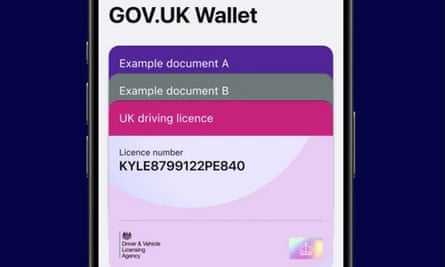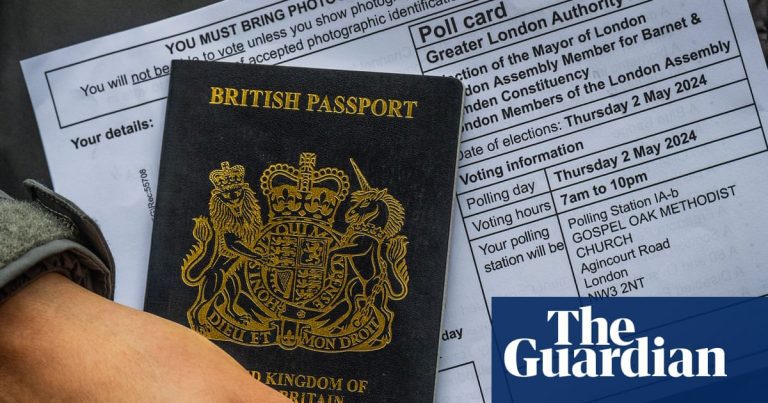British citizens could soon be able to carry their passport in a digital wallet on their phone, along with their driving license, universal credit account and marriage and birth certificates.
The plan was announced by Peter Kyle, Secretary of State for Science, Innovation and Technology, as part of a new smartphone app aimed at simplifying interactions with government services. He said this meant “the overflowing drawer full of letters from the government and the hours spent waiting to get a basic appointment will soon be relegated to history”.
The first government-issued credentials people will be able to carry in the new digital wallet, which launches in June, will be a driver’s license and a veteran’s card. The Government Digital Service then plans to roll out access to accounts relating to student loans, car tax, benefits, childcare and local councils.
Kyle said his department was working with the Home Office to allow digital versions of passports. These will continue to exist alongside physical copies and the ability to use them to cross foreign borders will be limited by other countries’ border systems, officials said.

Kyle said: “We monitor international standards closely. When these standards become clearer, of course, the government will aspire to be able to benefit from them as much as possible.
The digital wallet – which would be similar to wallets on Apple and Google devices – would be linked to an individual ID and would be sufficient to prove a person’s status, officials said. For example, a new football coach for a community team will be able to instantly share their disclosure requirement certificate, or someone receiving benefits can easily claim social discounts from the merchants who offer them. Kyle said there are currently no plans to use it to prove immigration status, but added, “we’re just at the beginning of that.”
Officials said losing a phone would not mean losing the wallet, as there would be systems to recover it. Kyle also tried to allay fears about data breaches, saying the app’s design was “very comfortably compliant with current data law”.
Speaking at a launch event in east London, inspired in part by Silicon Valley product launches, Kyle said: “We are going to transform the relationship between citizen and state.”
He said people under 18, who grew up with smartphones, would view the current government and a paper-based bureaucracy as backward.
“Bringing government services more online does not mean that people who cannot access the Internet will be left behind,” he said. “In fact, what we’re finding is that the more we make it easier to access online services…we, as a government, can start to focus human resources on what people need and can only interact in ways human… We will provide public services more humane, not less.
The technology has been developed over the past six months since Work has taken over and will include security features built into modern smartphones, including facial recognition controls.


